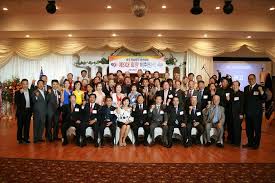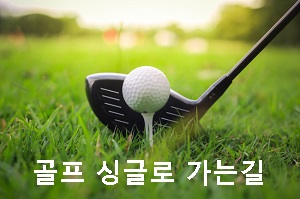CA
ON
호남향우회 (토론토)
전화: 647-981-0404
7 Bishop Ave. #2411 Toronto, ON

골프 싱글로 가는길
전화: 647-291-2020
115 York Blvd Richmond Hill Toronto, ON

놀부 - 한식/일식/중식
전화: 416-221-4700
3 Elmhurst Ave, North York, ON

토론토 민박 전문집
전화: 416-802-5560
Steeles & Bathurst ( Yonge) Toronto, ON

한인을 위한 KOREAN JOB BANK
전화: 6476245886
4065 Chesswood Drive Toronto, ON
.jpg)
토론토 기쁨이 충만한 교회
전화: 416-663-9191
1100 Petrolia Rd Toronto, ON

럭키 여행사
전화: 416-938-8323
4699 keele st.suite 218 toronto Ontario M3J 2N8 toronto, ON

홍이표치과
전화: 647-985-0456
9625 Yonge St #4, Richmond Hill, ON Toronto, ON
1.jfif)
조준상 (로열르페이지 한인부동산 대표)
전화: 416-449-7600
1993 Leslie St. Toronto, ON

행복부동산 -수잔정 Home Standards Brickstone Real
전화: 647-866-7878
180 Steeles Ave W Unit 30, Thornhill, ON

대형스크린,LED싸인 & 간판 - 대신전광판
전화: 416-909-7070
4065 Chesswood Drive Toronto, ON

캐나다 공인 컨설턴트 - 한인크레딧 컨설팅
전화: 416-897-8438
1 High Meadow Place, Unit 2 North York, ON

It would be a place where all the visitors including me share the life stories and experiences through their activities,especially on life as a immigrant.
Why don't you visit my personal blog:
www.lifemeansgo.blogspot.com
Many thanks.
블로그 ( 오늘 방문자 수: 62 전체: 261,057 )
인간승리의 참된 모습
lakepurity
2004-09-08
남미 콜럼비아에서 난민으로 이곳 캐나다에 정착한 ,27살의 Jose Parado는 12년전에 양팔을 몽땅 잃어버렸다. 손에쥔 현찰 $30,000달러로 인공팔을 만들어 부치는 대신,그돈으로 공부를 더하기로 결심한후,새인생을 꾸릴 장래에 대한 희망으로 그는 부풀어 있다.
이렇게 결정하기까지에는 지난 수주간 상당한 어려움이 있었다고 한다.
"3만불로 두팔을 구입해야할지? 아니면 공부를 더해서 더낳은 인생을 사는것이 현명한지?". 학업을 계속하는것도 중요하고, 또 잃어버린 두팔을 되찾고도 싶고, 그러나 그돈 3만불로는 동시에 두개의 꿈을 이루기에는 부족하고...
Parado는 4년전, 범죄와 마약으로 엉망이 되여버린 남미 콜럼비아에서 10학년을 마치고,미국 텍사스를 거쳐 이곳 토론토 캐나다에 삶의 터전을 마련하게된다. Humber College에서 방송통신계통의 공부를 할 계획이다.
그러나 양팔,그것도 어깨부근까지 몽땅 짤려 없어진 불구자이기 때문에 교육 받는게.... 그래서 처음에는 전기로 작동하는 인공팔을 부치는것도 깊이 생각
했었다.
3만불의 거금은 캐나다에 있는 라틴어메리카 쿄뮤니티에서 그에 대한 얘기를 듣고 모금 운동을 해서 모아진 돈이었다. 그와 마찬가지로 쿄무니티에서도,
어떻게 사용하는것이 가장 효과적인가?를 놓고 지혜를 짜느라 고심했었다고 한다.
그는 어려서는 그의 친구들처럼 사지가 멀쩡한 천진난만한 소년이었다.
어렸을때, 어머니,의붓아버지,그리고 4명의 형제들과,가난했지만, 단촐하게
그시절을 보내곤했다. 불행은 그에게 어느날 갑자기 들이닦쳤다.
그의 두팔이 새까만 재가된날을,충격으로 정신을 잃어버리기전까지는,아픈기억속에 간직하고 있다. 그날이 바로 1991년 10월 11일.
"그날 동네 어귀에서 친구들과 놀면서,망고열매를 따먹을려고 나무에 올랐다가 잘못하여 떨어지면서 그순간 붙잡은것이 전기가 흐르고 있는 고압선이었읍니다. 그리고는 이렇게 된것만 기억합니다"라고 하면서 어깨를 움직이며 머쓱해 했다.
두팔을 구입해서 우선 활동하는게 중요하게 생각되여,도움을 청하려고 라틴어메리카 코뮤니티의 문을 두드리는 첫단계로 전화를 했다. 거기서 회장직을 맡고있는 36세의 Mr.Ospina 와 인연이 이어지게됐다.
그날 따라 Ospina가 바빠 간단히 "이메일로 좀더 자세한 내용을 알려주면 어떻겠느냐?"가 통화의 전부였다. 전직치과의사였으나, 현재는 오주정부산하, 고부가가치의 기계를 제작 미국에 납품하는 부서에서 일하고 있는 Ospina는 그때 통화 당시에 느꼈던 처절함을 되뇌이면서 모금을 해서 팔을 만들어 주는것이 내가 코뮤니티를 대표해서 할일이다 라고 결심하고 모금을 시작했고, 지난 1월달에 마감했을때, $3만달러를 손에 쥐게 됐다고 한다.
"Jose Parado 에게 팔을" 이라는 슬로건을 들고 인공팔을 제작하는 여러회사들을 접촉하여 협의를 시작,플라스틱 인공팔을 부착했으나 사용하기에는 너무나 무겁고 힘들어하는것을 알게됐다. 많은 접촉끝에 3개의 제작회사의 대답이 똑같이 그에 필요한 부품을 제작하여 납품하는길이 최선이라고 결론이났다. 그러나 그것도 겨우 조금 도와줄뿐 만족치못하고 돈만 다 없애버릴것 같은 결론에 도달한다. "협의하고,궁리끝에 대신에 그돈으로 하고싶던 공부를 더해서 당초에 계획했던 두개의 목표를 이루는것이 더 뜻이 깊다"라는 본인의 결심을 모금에 참가한 코뮤니티관계자들에게 전달,결론에 이르게 된것이라고한다. 그는 웬만한것은 주위의 도움없이 해결한다.
양치질은 문고리에 치솔을 고정시켜서 머리를 좌우로 흔들어서 해결하고,
컴퓨터는 어깨에 바짝붙어 조금남아있는 팔과 발을 이용해서 해결하고,
옷도 단추끼우는것만 주위의 도움이 필요할뿐...혼자의지로 해결한다.
그는 현재 더프린과 애글링턴부근의 조금만 아파트에서 기거하며,앞날에 대한 꿈으로 부풀어있다. 정상인 사람들과 똑같은 정신적 의지를 갖고.
잘못하면 포기할뻔했던 한청년의 희망이 뜻을 같이하는 주위의 도움으로
결실을 보게됐다는 오늘자 토론토스타지의 기사는 어둡게만 보여지는 우리
사회에, 아직도 소리없이 고통을 같이 나누는 많은 숨어 베푸는사람들의 훈훈한 입김으로, 희망을 갖고 살만한 사회라는것을 감사한 마음으로 깊이
느끼게 하고도 남는것 같다.
Mar. 20, 2004. 09:10 AM
CHARLA JONES/TORONTO STAR
Jose Prado, 27, lost both arms 12 years ago and now, an organization of Colombian Canadians has raised $30,000 for him to use toward a sophisticated pair of prosthetic arms or a secondary education.
How José lost his arms, gained a dream
Colombian refugee faces a dilemma
$30,000 for artificial limbs or education
An education is a useful thing.
So is a pair of functioning arms.
If you could have one but not the other, which would you choose?
For José Prado, the question is more than merely hypothetical. He's been grappling with it for the past few weeks and is finally close to making up his mind.
Now 27, Prado came to Canada four years ago as a political refugee from the violence-plagued South American republic of Colombia, where he had to leave school at the end of 10th grade. He would dearly love to improve on that.
He could, too. He's bright, hard-working, and highly motivated. Plus, he has a considerable sum of money to his name.
Thanks to the generosity of others — mostly members of Toronto's Latin American community — Prado has about $30,000 collecting interest in a Toronto bank account, money that he could use to upgrade his academic qualifications.
He'd like to study communications, maybe at Humber College. He's thinking of a career in radio.
But there's just one problem.
He has no arms — literally, no arms.
All he has is a small stump attached to each shoulder, both just a few centimetres long.
So he faces a dilemma. What should he do with the money collected on his behalf during a year-long fundraising drive that ended in January? Should he purchase a pair of electronically operated artificial limbs or should he get himself a college diploma?
Unfortunately, for $30,000, he won't be doing both.
"It's a decision we have to make, the whole Latin community," says Prado, a soft-spoken, clean-cut young man with a trim moustache and boyish good looks. He's ensconced in front of a laptop computer in his sparsely-furnished but scrupulously tidy one-bedroom apartment near the corner of Dufferin St. and Eglinton Ave. "Everybody knows me in the Latin community. I have a lot of friends."
He also has a story to tell — the still unfinished chronicle of one man's crippling accident, followed by his flight from a country haunted by political violence and his arrival in a vastly more peaceful northern land, where his misfortunes and his hopes have helped to unite an emerging immigrant community. But the story is far from over, and its latest chapter ends with a question. Will it be school or arms?
Initially, it was supposed to be arms.
In fact, for more than a decade, Prado has nurtured a dream of once again possessing a pair of working arms. That dream was foremost in his thoughts early last year when he approached a fellow Colombian immigrant named Mauricio Ospina.
Ospina is president of an association of Colombian professionals in Toronto, which was why Prado wanted to speak to him.
But Ospina was busy that day, and he tried to fob Prado off.
"I said, `Send me an e-mail,'" recalls Ospina, 36, a garrulous and energetic former dentist, who now works for the Ontario government promoting the province's high-tech manufacturing sector to the U.S. market. "And José said, `I don't have any arms.'"
Ospina grimaces. "You can imagine how terrible I felt."
Prado recounted the tale of how he lost his arms, and Ospina decided what he was going to do. He was going to help the young man to obtain a pair of artificial limbs.
"I said, `I don't know how, but we are going to get you the money.'"
Prado had already done his homework and knew that he would need at least $30,000 to pay for the advanced bio-electronic components required to power the kinds of prostheses he had in mind.
Ospina met shortly afterward with the other directors of his organization, now called the Canadian Coalition of Professionals from the Americas, and they resolved to launch a campaign called "Brazos para José Prado."
Arms for José Prado.
"We were able to band the entire Latin community around this cause," says Ospina. "I tell you, we worked so hard."
The work paid off. When they heard about what had happened to Prado, people reached straightaway for their wallets, purses or chequebooks — and no wonder.
In the first place, Prado is an impressive young man, low-key, articulate, and with an air of genuine integrity. He's just the kind of individual that people would be eager to help.
In the second place, he has no arms.
This, the absence of Prado's arms, is the crux of the story, and it came about more than 12 years ago, when he was just 15.
At the time, he was living in a small Colombian town called Golondrinas with his mother, his step-father, and his four brothers. The town is located a short drive outside the city of Cali, not far from the South American country's Pacific coast. Prado's step-father was employed in a local factory as a metal worker. The family was very poor.
The day when Prado destroyed his arms is scorched into his memory still, except for the part when he was unconscious.
The date was Friday, Oct. 11, 1991.
"I was playing as a normal child," he recalls. "I climbed a mango tree. I was falling from the tree. I grabbed an electrical wire." He gives a shrug. "And that's what happened."
--------------------------------------------------------------------------------
`I live a normal life,
as a disabled person. I'd
like people to see me as
a normal person.'
José Prado
--------------------------------------------------------------------------------
During the few moments that Prado clung to that wire, he burned both of his arms almost to cinders. He blacked out at once and did not recover consciousness until five hours later. By then, he had been taken to a local hospital, where the medical staff was extremely busy.
Maybe if the doctors had got around to treating him sooner, they might have been able to save at least a portion of his arms. Instead, gangrene set in, and it spread. Two days after the accident, a surgeon had no choice but to amputate both limbs completely.
"I would have lost the arms, anyway," Prado says now, "but not so high up. For sure, the arms had to be cut off."
Twenty days after the operation, the youngster was back at school.
"At the time, it was hard," he recalls. "But then things started to change. I started to see life in a different way. I started to love life. For me, it was a second chance."
But life in Colombia is seldom easy, even for people with all of their limbs. Prado confesses that he went through periods of frustration and bouts of aggressive behaviour that led to conflict with his teachers. After Grade 10, he dropped out of school.
"It was so hard in Colombia," recalls Prado. "I went to so many different places, looking for help."
He didn't find any help, or at least none that would convey him anywhere near his current position: Facing a choice between a higher education and a new pair of arms. In his homeland, there seemed to be no choices at all.
Colombia is a land afflicted by strife — by drug wars and guerrilla wars, not to mention garden-variety crime and corruption. It's a rare family in the country that has not suffered some knife-stroke of sorrow, some gunshot of grief.
In 1997, the Prado family of Golondrinas finally paid its quota of blood, when José's older brother, Alejandro, was shot and killed by right-wing paramilitary goons.
"That hurt me a lot," Prado says now.
It also got him thinking that maybe the violence-prone South American country was not the ideal place to spend the rest of his life, and so he headed north.
He found his way to Dallas, where he lived for two years, studying English as a second language. In September, 2000, he pushed north again, traveling all the way to Canada, where he was accepted as a political refugee. He became a permanent Canadian resident about 18 months ago.
Like other new immigrants, Prado has gradually managed to adapt to his new country, to settle in and move ahead.
Of course, that's no simple matter when you don't have any arms, but Prado gets by, thanks to various publicly-funded support programs for the disabled. To keep busy and to help others, he does volunteer work, translating documents for other recent Latin American immigrants and helping them get settled in their new country. Meanwhile, it's remarkable what a determined individual is able to do with a pair of miniature stumps and a couple of feet.
"I've been inventing so many different ways to manage daily living," says Prado. "I have to know how to manage my day."
He is able to dress and undress himself, except for buttons. Zippers, he can handle. He spends a lot of time at his computer, tapping the keys with the stumps of his arms and operating the mouse with his feet.
He tidies his apartment. He cares for his plants. He has even figured out a way to brush his teeth, using the bathroom doorjamb as a kind of vice-grip to hold the toothbrush as he moves his head back and forth. He can cook with an oven but not a stove. He writes with his feet. He plays sports, particularly soccer. He especially loves to swim, which he is somehow able to do even without arms.
"They call me `Dolphin,'" he says with a grin.
Meanwhile, he has pursued his long-cherished dream of obtaining a set of artificial arms, a pair of prosthetic limbs that would be controlled and powered electronically.
Father Hernan Astudillo, pastor of the San Lorenzo Anglican Church near Dufferin St. and Lawrence Ave., initially championed Prado's cause. The church's mainly Hispanic congregation collected about $6,000 to help him, says Prado. Later, Ospina and the association of Colombian professionals took up the challenge. The local Spanish-language media got involved.
Three months ago, Prado was outfitted with a pair of rudimentary prosthetic limbs, not the electronic arms he has been hoping for but a pair of plastic devices that he can manipulate to a limited degree with his shoulder muscles.
He uses them off and on, but finds them extremely tiring to operate, and they are capable of only very limited movement.
This didn't seem to matter at first, because the goal all along had been to enhance the devices with a bio-electrical system that would enable Prado to manoeuvre his new arms with nearly effortless muscular impulses.
By January, three medical supply companies had provided quotes for the job, and everything seemed set to proceed. Last month, however, a snag emerged, when all three firms took a second look at the project and came to the same conclusion.
"The three companies said they would love to sell the components," says Ospina, "but they might not make a dramatic difference."
Even in the best of circumstances, the companies said, Prado would still enjoy only very crude use of his prosthetic arms and hands. Besides, the devices would be very heavy. Worst of all, the electrical components would soon become obsolete and would need to be replaced — once again, at a very high cost.
For a time, this news dampened the spirits of everyone involved in the Arms for José Prado campaign, but only for a time.
"At first, I was a bit confused," says Ospina, "but now I'm happy. I think this is better."
Instead of buying Prado a set of electronically operated arms, he realized, the $30,000 could instead be used to fund the young man's education.
"If he has access to education, I think this might accomplish double of what we planned."
As it happens, Prado is leaning in the same direction, and he has thought long and hard about the matter.
For years, the use of a functioning pair of arms has been his most precious dream, but now he wonders if there isn't an even better dream, an even brighter future ahead.
"I've been like this for 12 years," he says. "I live a normal life, as a disabled person. I'd like people to see me as a normal person."
The phone rings, and Prado answers it. He uses his feet, his stumps, the crook of his neck. At one point, the handset drops to the floor, but he doesn't betray any alarm. He calmly picks it up with his feet and resumes the conversation. When the call is over, he replaces the handset in its cradle.
"I don't want to spend the money just to have electrical arms," he says, sounding like a man who has made up his mind. "I'd rather get the education. I want to become somebody in life."